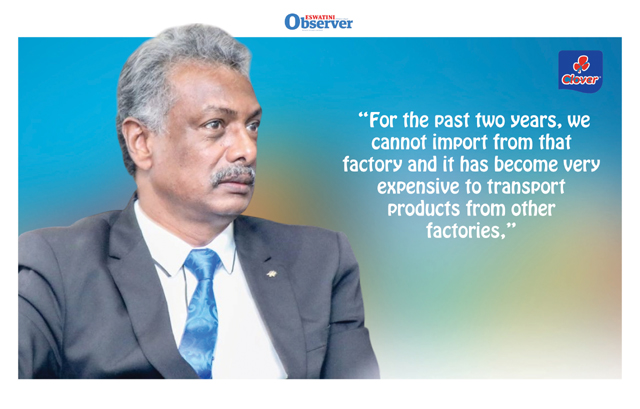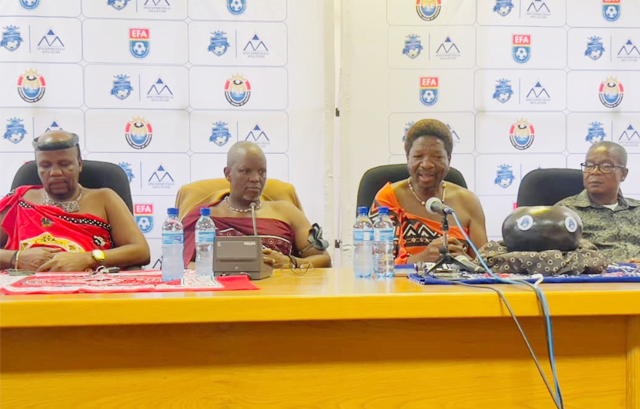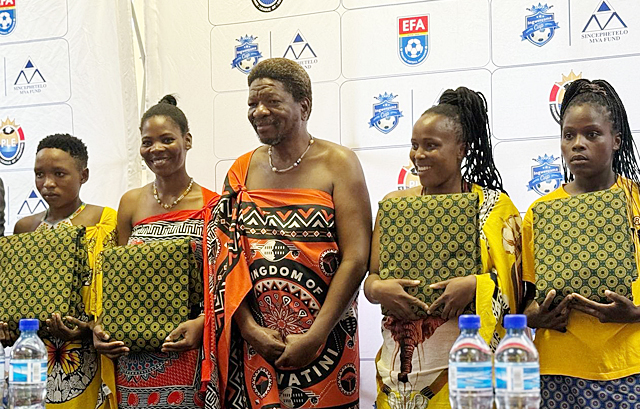By Nomthandazo Nkambule | 2022-09-10
While the world was grappling with COVID-19 especially in 2020/21, it has since surfaced that the number of school going children that were treated for sexually transmitted infections (STIs) during the lockdown in the country was alarming.
Not only that, about 1 760 learners in Grade VII, Form III and Form V got pregnant during the lockdown.
United Nations Educational, Scientific and Cultural Organisation (UNESCO) HIV and Health Education Eswatini National Programme Officer Dr Bethusile Mahlalela said COVID-19 exposed lots of challenges, especially those pertaining to young people.
She revealed that some learners were abused at family setting, adding that a number of issues emerged since the outbreak of COVID-19, including mental and health issues, while some learners had their parents dying and many other challenges. Dr Mahlalela said the abuse amongst school going children occurred despite efforts to curb teenage pregnancies which in turn results to pupils dropping out of school. She said UNESCO and its partners collaborated to ascertain what causes early pregnancy amongst children.
She said in June, 2018, UNESCO launched the EUP campaign in Eastern and Southern Africa (ESA) during the Southern African Development Community (SADC) ministers of education meeting in Durban, South Africa.
She said the launch of the campaign was part of the ESA ministerial commitment, which was endorsed in December 2013 by ministers of education and health in the ESA region. The commitment has prompted significant progress by member states to address the needs of adolescents and young people with respect to ensuring access to life skills-based HIV and sexuality education and youth-friendly SRH services.
One of the targets of the ESA commitment was to reduce EUP by 75 per cent by the year 2020. In the 2017 Technical Coordination Group (TCG) meeting of the ESA commitment, countries agreed to focus on the issue of EUP as an area requiring intervention across all countries and there was a clear recommendation to launch a regional EUP campaign. Following this recommendation, UNESCO commissioned a situation analysis on EUP in 10 countries in ESA to assess the magnitude of the problem in the region. The study revealed that EUP in ESA is very high with at least 15 per cent of 15 to 19-year-olds ever having been pregnant.
Recommendations
She said ministers at the launch of the campaign were invited to approve the recommendations from the situation analysis while renewing their commitment to attainment of the ESA commitment targets. In addition, to mandate country ESA technical working groups to strengthen implementation and reporting of country progress and to commission the SADC Secretariat and its partners to support implementation of a Regional Campaign on Early and Unintended Pregnancy.
Dr Mahlalela said the EUP campaign aimed at advocating for the right of girls to complete education through the development and operationalisation of EUP prevention, management and re-entry policies. “It advocates for the delivery of CSE that develops learners’ knowledge and skills to prevent pregnancy through integrating content on pregnancy prevention, access to contraceptives, gender equality and power dynamics within relationships.
“It aims at increasing adolescent access to health education and services (including contraception) through establishment of referral system between schools and health facilities,” she said, adding that the EUP campaign would eliminate school related gender-based violence and engage boys and young men in learning and practising pregnancy prevention. The campaign would also shift cultural norms that put girls at risk of EUP and promote parent-child communication about sexual health.”
...Child marriages prevalent in Lubombo
Early child marriages are now rife in the Lubombo region.
UNESCO HIV and Health Education Eswatini National Programme Officer Dr Bethusile Mahlalela said in their meetings with principals from across the country, it was revealed that some pupils were dropping out (of school) because they had gotten married.
This she said was prevalent, especially in the Lubombo region.
She said principals from the Hhohho region revealed that some pupils also worked in the dagga fields getting good money and later dropped out.
She said from their engagements with the principals it was clear that quite a handful of issues led to pupils dropping out. Dr Mahlalela said some former learners from the Mananga-Mhlume belt resorted to sex work due to various reasons. Meanwhile, in January 2020 Eswatini launched the ‘Let’s Talk’, a campaign aimed at mobilising all stakeholders to address and reverse the escalating cases of early and unintended pregnancy.
‘Let’s Talk’ is a regional campaign aimed at mobilising all stakeholders to address and reverse the escalating cases of early and unintended pregnancy.
share story
Post Your Comments Below

Clover Swaziland has called upon minister of finance to reconsider the current taxation structure...

INGWENYAMA Cup Chairman Prince Hlangabeza has called for violence-free games and urged teams to a...
The GNU in its current form is not likely to last, with pointed comments from the Preside...

IN a significant gesture, their Majesties blessed the participants of the Ingwenyama Cultural Cup...
All material © Swazi Observer. Material may not be published or reproduced in any form without prior written permission.
Design by Real Image Internet